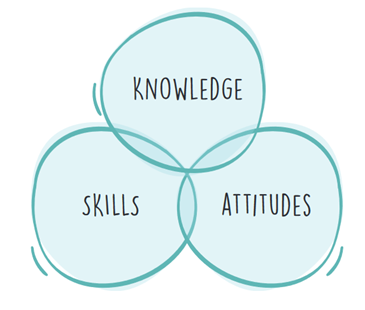Quality Assurance of Heritage Management-Related Programmes: Applying UNESCO’s Competence Framework For Cultural Heritage Management Quality Assurance of Heritage Management-Related Programmes: Applying UNESCO's Competence Framework for Cultural Heritage Management
Michel Venne M.A.
Supervisors: Dr. Britta Rudolff with Prof. Dr. Johanna Blokker
The heritage sector has a limited understanding of the effectiveness of higher education programming in its related fields. Much of higher education is divided into knowledge silos, and the sheer variety of disciplines that are involved compounds the challenge of identifying which programmes best support what kinds of heritage work, and in what manner. Inter- and transdisciplinarity are key characteristics of the heritage sector and are central to its appeal; moreover, the skills and knowledge required are eminently transferrable to other fields. Thus any attempt to set universal standards for higher education programming in cultural heritage management would be restrictive and counter-productive. Nevertheless, an ability to identify the necessary skills across disciplines, or even within a single discipline, could greatly simplify the task of assessing the effectiveness and relevance of teaching in cultural heritage management in a given context, and could in turn improve educators' ability to respond.
The publication of the Competence Framework for Cultural Heritage Management by UNESCO in 2021 represents one of the first attempts to identify the competencies needed by cultural heritage managers. Because it presents a list of specific "knowledge", "skills" and "attitudes", the Competence Framework could potentially be used by individuals and institutions to assess abilities and refine programmes. However, testing on the basis of the Framework remains limited in the higher education context.
This dissertation project represents a first attempt to show how educational institutions could use the Framework to better integrate cultural heritage management competencies into their offerings. It begins with an investigation of the current situation for heritage management-related programmes, then applies a test of effectiveness based on the Competence Framework. By examining just one type of heritage management discipline (architectural conservation) within a single national context (India), it is possible to limit the number of variables at play and account for the local specificity of the heritage sector.
The aim is both to support higher education institutions in determining whether the inclusion of heritage management competencies in their offerings might benefit their teaching, research and outreach in this area as well as in other areas, and to provide a roadmap for implementation. The approach being developed also considers the ever-changing needs and desires of students with regard to higher education, including their concern for employability post-graduation. By linking with local and national work in heritage, the project ensures that its recommendations integrate consideration of sustainable development.
Since the project focuses on just one discipline and one country, further investigation and testing will be certainly needed in future to ensure that the approach developed here holds broader applicability.

